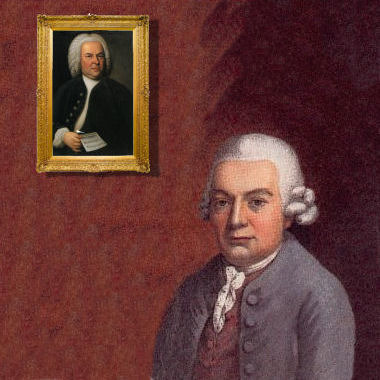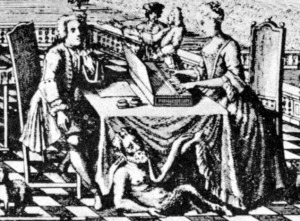 Carl Philipp Emanuel Bach: Trio Sonata in A minor, Wq. 148, H. 572
Carl Philipp Emanuel Bach: Trio Sonata in A minor, Wq. 148, H. 572
I have always wondered what it must have been like to grow up as the son of Johann Sebastian Bach. The old man was known around town as a strict disciplinarian and had, by all accounts, a fretfully quick temper! In addition, Sebastian was not merely a prodigious composer; he also sired twenty legitimate children. His first wife Maria Barbara Bach — the daughter of his Uncle Michael — gave birth to a family of seven, but only four children managed to live into adulthood. The second son from this rather incestuous union — the Bach’s preferred to keep the musical genes in the family — Carl Philipp Emanuel was born in 1714. As a child, C.P.E. was always pictured next to his mother, because his dad was rather busy tending to his musical duties in Weimar and subsequently with Prince Leopold at Cöthen. In 1720, while Johann Sebastian spent nearly a year with Prince Leopold’s court in Carlsbad, Maria Barbara fell ill and passed away. Eighteen months later, Sebastian married Anna Magdalena Wülken, who bore him an additional thirteen children.
We do know that C.P.E. was never able to accept his stepmother. From this brief biographical sketch it becomes very clear that the Bach household functioned in a clearly defined manner, with a traditional division of labor between husband and wife. Anna Magdalena was charged with looking after countless little feet running around the house, which included at least four assistants to Sebastian and a number of musical apprentices, while the husband minded all matters of education. And this, of course, included music lessons for his children.

Johann Sebastian and Anna Magdalena
At age 24 C.P.E. was still living at home, however, he would soon enter into the services of Frederick the Great of Prussia. Although the assessment of the relationship between C.P.E. and his father changed dramatically in the course of the nineteenth century, C.P.E. always considered dad his teacher, his mentor, and his friend. Let’s not forget that we have to thank C.P.E. for the survival of much of J.S. Bach’s music. In his mating behavior C.P.E. rather predictably followed the example set by his father. However, he wisely limited his offspring to three children!


The facts of history are that in those days of serious infant mortality one all too often wound up with NO surviving children if he didn’t have so many. Sebastian as a God-fearing devoted family man wanted none of that!